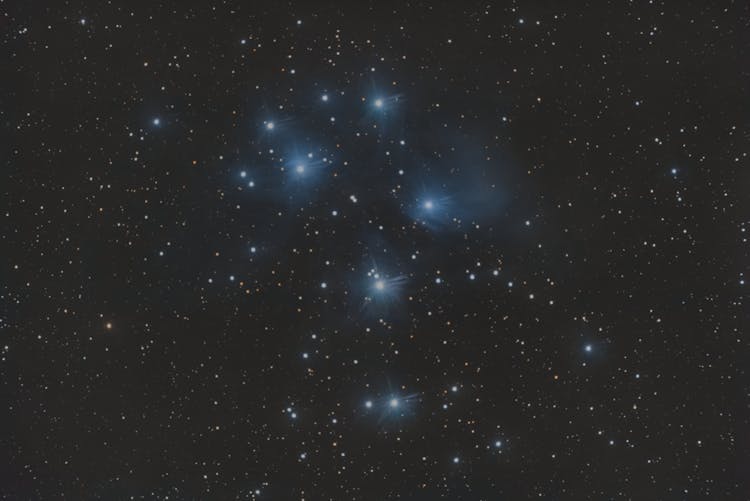Table of Contents
"tag": ["Big Bang Theory", "scientific community", "cosmology", "alternative theories", "cosmic microwave background", "observational evidence", "complexity in science","public perception of science", "dark energy", "peer pressure in science"], "cat": "Cosmology", "title": "The Scientific Community's Response to the Big Bang Theory", "excerpt": "Exploring the diverse reactions within the scientific community regarding the Big Bang theory, including support, criticisms, and emerging alternative theories.", "tags": "cosmology, Big Bang Theory, scientific skepticism, dark energy", "categories": "Science, Cosmology"
Are there alternative theories to the Big Bang model?
The Big Bang Theory: Bridging Gaps in Astrophysics
TLDR Summary- 🌌 The Big Bang theory is widely accepted but faces skepticism.
- 📚 Scientific education has benefited from the theory.
- 🔬 Observations support the theory despite discrepancies.
- 🤔 Alternative theories are emerging continuously.
- 🧠 Peer pressure affects the acceptance of questioning the theory.
The Big Bang theory, a cornerstone of modern cosmology, has sparked both support and skepticism within the scientific community. This fundamental model posits that the universe originated from an extremely dense and hot state approximately 13.8 billion years ago. However, this fundamental understanding is often challenged by emerging theories and observational data.
Scientific education has drastically improved since the popularization of the Big Bang theory and its representation in media. Shows incorporating authentic scientific details have made scientific concepts more accessible and appealing to the public. Physicist David Saltzberg’s contributions served as an impetus for increased engagement in physics, leading to a noticeable uptick in admissions to physics programs. This positive trend reflects a broader impact on the scientific community’s efforts to relate complex ideas to everyday life.
Nevertheless, the Big Bang theory is not without its criticisms. Critics point out significant contradictions between observational data and predictions made by the theory, particularly surrounding the abundance of light elements such as lithium and helium. These discrepancies, although often considered outliers, collectively raise questions about the predictive power of the theory. As such, some researchers advocate for alternatives that propose an evolving, non-expanding universe, thereby dismissing the notion of a definitive beginning in time.
Furthermore, the complexity of the Big Bang theory has grown over the years, incorporating new parameters such as dark energy. This complexity leads to comparisons with the Ptolemaic system of epicycles, where convoluted explanations were devised to fit observational data. Many find this unsettling as it diverges from the elegance of simpler models. Critics argue that reliance on increasingly complex hypotheses signals a deficiency in the foundational principles of the Big Bang theory itself.
Throughout the scientific community, strong peer pressure exists to uphold the Big Bang theory. Those questioning its validity often face significant opposition and marginalization. This status quo can inhibit innovative thought and hinder the exploration of alternative models, as the prevailing consensus may inadvertently stifle dissenting voices in the quest for cosmic understanding.
Despite the criticisms and concerns, there remains compelling observational evidence supporting the Big Bang theory. Establishments like NASA report that the cosmic microwave background radiation, galaxy redshifts, and the evolution of galaxy structures correspond with the predictions made by the theory. These facts lend credibility to the Big Bang theory and buttress its foundation as a robust explanation for cosmic phenomena.
Ultimately, while the Big Bang theory withstands as a strong candidate for understanding the origins of the universe, nothing within the realm of science is absolutes. New and unforeseen observations can pave the way for questioning existing paradigms, allowing the scientific discourse to flourish and adapt. The ongoing research efforts dedicated to cosmology will undoubtedly refine our conception of the universe and possibly unveil truths still hidden by the expanding cosmos.
For those hoping to delve deeper into the intricacies of the universe, exploring observational tools such as telescopes can offer new perspectives. One might consider the Gskyer Telescope, a fantastic option for beginners looking to observe the wonders of the cosmos.
Indeed, the journey to understand the universe persists, driven by an insatiable curiosity and a collective passion for discovery. As the scientific community continues to engage with the pressing questions surrounding the Big Bang theory, the pursuit of knowledge remains ever critical to our understanding of existence.
Another promising tool for aspiring astronomers is the Telescope for Astronomy Beginners. This equipment combines portability and versatility, making it a suitable choice for enthusiasts eager to explore the stars.
Also, consider exploring educational resources provided by NASA, such as NASA's detailed explanations on the Big Bang, which further illuminate the foundational principles of the universe's structure.
In conclusion, while challenges and alternative viewpoints arise in the discourse surrounding the Big Bang theory, the pursuit of understanding the universe continues unabated. The evidence, theories, and public engagement ensure that the dialogue within the scientific community remains vibrant and dynamic as new research sheds light on the cosmos
- 📡 Exploring the universe can be a thrilling experience.
- 🔍 The quest for knowledge is ongoing and open to all.
- 🌌 Scientific inquiry must embrace new ideas and possibilities.
- 🧪 A deeper understanding leads to more enlightening discoveries.

Cosmic Timescales Reconsidered: James Webb's Impact
Navigation
Latest Posts
The Art of Apple Selection
What is the scientific community's general consensus on the Big Bang theory?
Mapping Particle Physics to Cosmology